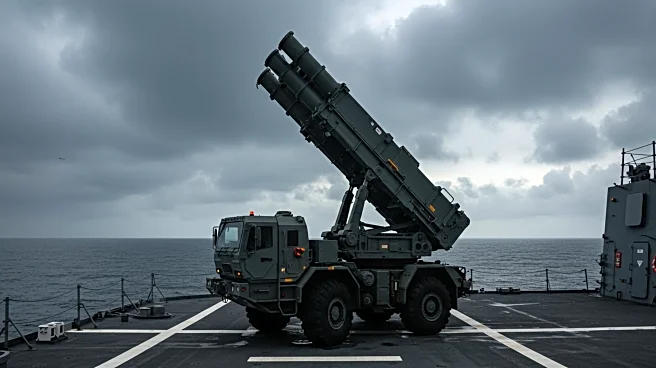What's Happening?
Russia's Pacific Fleet has conducted missile drills in the Sea of Japan, launching Kalibr and Uran missiles from the Marshal Shaposhnikov frigate. The exercises involved naval aviation aircraft and drones, successfully hitting designated targets. These drills come amid discussions in Japan about potentially revising its 'Three Non-Nuclear Principles,' which prohibit the production, possession, or hosting of nuclear weapons. The Russian defense ministry released footage of the missile launches, highlighting the strategic capabilities of its Pacific Fleet.
Why It's Important?
The missile drills by Russia in the Sea of Japan underscore the ongoing military tensions in the region. This development may influence Japan's defense policies, particularly its stance on nuclear weapons. The drills demonstrate Russia's military capabilities and readiness, potentially affecting regional security dynamics and prompting responses from neighboring countries. The situation highlights the delicate balance of power in East Asia, with implications for international relations and defense strategies.
What's Next?
Japan may reconsider its nuclear policy in response to regional security threats, potentially leading to significant shifts in its defense strategy. The international community will likely monitor these developments closely, as changes in Japan's nuclear stance could impact global non-proliferation efforts. Further military exercises by Russia may provoke diplomatic responses from other countries, influencing regional alliances and security agreements.









